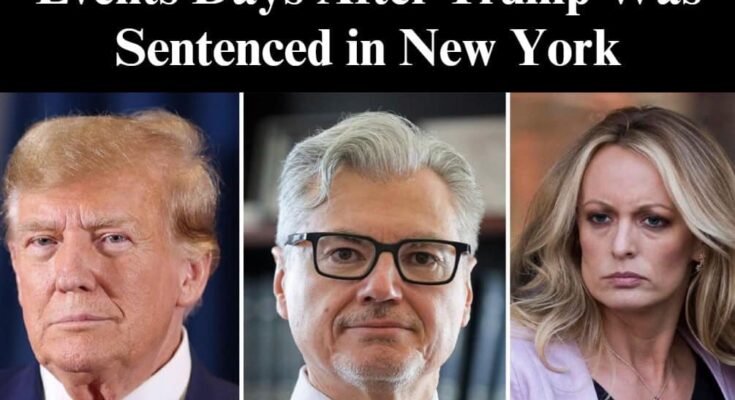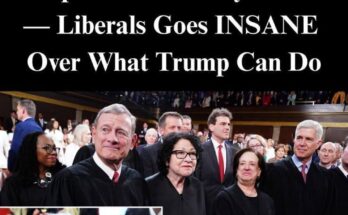CNN’s legal expert said last week that it’s very possible President-elect Donald Trump could benefit from his sentencing in his so-called ‘hush money’ case in Manhattan.
Last week, Trump appeared in Judge Juan Merchan’s courtroom virtually, where he was given no jail time or any other form of punishment, save for being officially convicted on 34 felony counts related to allegations that he illegally attempted to hide the payments to adult film star Stormy Daniels regarding an affair in the mid-2000s that he said never took place.
During a show segment, legal expert Elie Honig stated that the president-elect has several options to appeal the ruling, including appealing to the U.S. Supreme Court to have the sentence overturned. This decision was made after justices declined to intervene in the case at the last minute, despite an emergency filing by Trump’s legal team the day before Merchan sentenced him.
“I think it was perfectly sound,” Honig told host Kaitlin Collins regarding the high court’s decision not to intervene. “Basically, the justices in the majority said two things. First of all, they said, ‘What‘s the harm? You‘re going to get sentenced to zero. You can do it by Zoom. You can roll out of bed and do it. And, second of all, you do maybe have substantial issues.’ I think he has substantial issues on appeal, but you can handle them through the full appeal process that will follow your sentencing.”
Honig added that Trump “actually gets a benefit” from the speedy decision, especially now that he’s been sentenced to an “unconditional discharge” that frees him to see an appeal.
“Trump actually gets a benefit by being sentenced [Friday], which is once that sentencing is over as of [Friday], then he can take his full appeals,” Honig remarked. “He can go up to the New York Courts of Appeals. He can go maybe to the U.S. Supreme Court and say, ‘The charge against me was unconstitutional,’ which I think it may be. He can say that the jury was not properly instructed, but if he had gotten his way, if he was not sentenced tomorrow, he would not have been able to appeal.”
He noted further that Trump was sentenced to “essentially nothing” through an “unconditional discharge.” Under New York law, a sentence of “unconditional discharge” finalized Trump’s conviction, but he did not face imprisonment, a fine, or probation.
WATCH:
Meanwhile, the U.S. Supreme Court on Monday declined to hear an appeal challenging Delaware’s ban on assault-style rifles and large-capacity ammunition magazines, as well as a case regarding Maryland’s handgun licensing requirements.
By doing so, the Court avoided addressing two significant cases involving the contentious issue of gun rights.
The justices turned away an appeal from a group of gun enthusiasts and firearm advocacy organizations, who sought to block Delaware’s ban on “assault weapons” and magazines capable of holding more than 17 rounds, following a lower court’s decision not to issue a preliminary injunction.
Reuters noted that such weapons have been used in several mass shootings in the U.S., but according to FBI crime states, the vast majority of gun-related homicides are committed with handguns.
The justices also declined to hear an appeal from the gun rights group Maryland Shall Issue and other plaintiffs, who were challenging a lower court’s ruling that upheld the state’s licensing law as consistent with the U.S. Constitution’s Second Amendment right to keep and bear arms.
Delaware’s gun safety laws, enacted in 2022, ban several semi-automatic “assault” rifles, including the AR-15 and AK-47, but allow individuals who owned these weapons before the law’s passage to retain them under specific conditions. The law also prohibits large-capacity magazines, affecting devices owned before its enactment.



